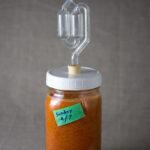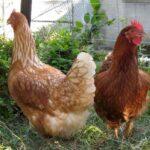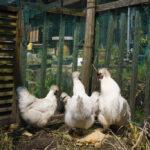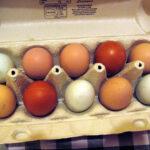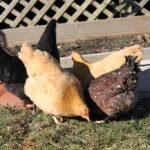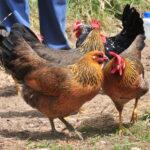If you’re looking to start a homestead and want to keep chickens, choosing the right chicken breed is an important decision. Each breed has its own unique characteristics, from egg production to personality, so it’s essential to choose a breed that fits your needs. Here’s a comprehensive guide to help you choose the right chicken breed for your homestead.
Guide to Choosing a Chicken Breed
Purpose
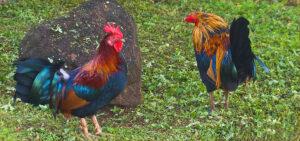
The first step in choosing a chicken breed is to decide what you want to use them for. Are you keeping chickens for their eggs, meat, or both? Do you want a breed that’s good for showing, or are you looking for a bird that’s good with children?
Climate
The climate of your area will also play a role in choosing a breed. Some breeds are better suited to hot climates, while others are more tolerant of cold weather. Consider the average temperature range in your area, as well as the weather patterns, before making a decision.
Space
The amount of space you have available for your chickens will also play a role in choosing a breed. Some breeds are more compact and can do well in small coops, while others need more room to roam. If you have a limited amount of space, choose a breed that’s known for being friendly and easy to handle.
Egg Production
One of the main reasons people keep chickens is for their eggs. Different breeds lay different numbers of eggs, so it’s important to choose a breed that fits your needs. For example, Leghorns are known for laying a large number of eggs, while Orpingtons lay fewer but have a larger yolk-to-white ratio.
Meat Production
If you’re keeping chickens for their meat, choose a breed that grows quickly and has a high meat-to-bone ratio. Breeds like the Cornish Cross are popular for meat production, as they reach market weight in just 8–12 weeks.
Temperament
Chickens are social animals, so it’s important to choose a breed that’s friendly and easy to handle. Some breeds, like the Rhode Island Red, are known for being friendly and docile, while others, like the Plymouth Rock, are more aggressive. If you have children or plan to keep chickens in a petting zoo, choose a breed that’s friendly and easy to handle.
Hardiness
It’s important to choose a breed that’s hardy and disease-resistant, as chickens can be susceptible to a range of illnesses. Breeds like the Plymouth Rock and the Rhode Island Red are known for their hardiness, while breeds like the Leghorn are more susceptible to disease.
Cost
Finally, consider the cost of each breed. Some breeds are more expensive than others, so choose a breed that fits your budget. Keep in mind that the cost of raising chickens includes feed, housing, and medical expenses, so it’s important to choose a breed that’s cost-effective in the long run.
Choosing the right chicken breed for your homestead is a decision that requires careful consideration. Take the time to research each breed and consider your purpose, climate, space, egg and meat production, temperament, hardiness, and cost before making a final decision. With the right breed, you can enjoy a successful and rewarding homesteading experience.
Keywords: homestead, chicken breed, egg production, meat production, temperament, hardiness, cost, climate, space, purpose, choosing a chicken breed, chicken breed for your farm, chicken breed for your homestead
Check out our Novel Writing Workbooks
Check out Little Tree Food Forest for articles on food forests and homesteading.
Check out FoodieScapes for articles on growing, fermenting and preserving food
Check out StoryScapes.World for articles on writing.
Subscribe to our newsletter to get information delivered to your inbox on edible landscaping, growing food and medicinal plants, growing mushrooms, foraging, fermentation, food preservation, raising small livestock, and more.




